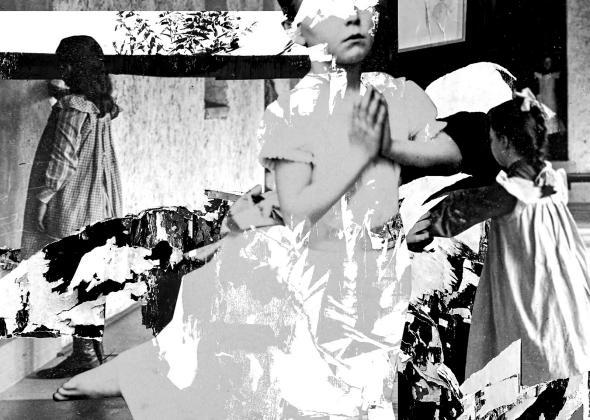In one of the canniest touches in Sally Rooney’s novel, Conversations With Friends, published earlier this year, a writer idolized by Rooney’s 21-year-old narrator and her best friend is celebrated for her collection of essays. Is there any path to fashionable literary fame more quintessential to the late 2010s than this? Over the past few years, the essay, once an inconvenient form prone to washing up in collections of miscellaneous writings that agents assured their clients were fiendishly hard to sell, has enjoyed a boom. The internet’s insatiable appetite for personal stories allowed young writers to break out and get published in outlets that might once have felt out of their reach, even if, as Slate’s Laura Bennett pointed out in 2015, the fees paid for such essays rarely compensated for the often corrosive attention they attracted. This spring, the New Yorker declared the fad to be over. But even in its more respectable book form, the essay collection, essays have become a trouble zone. A much-shared piece by Merve Emre in the Boston Review, “Two Paths for the Personal Essay,” took to task a new generation of popular essayists for their lack of rigor and outlined a future for the form in which writers must choose between mushy emotional meandering and unsentimental intellectual precision.
What the chatter over such standards drowns out is the possibility of an essay that’s just not all that personal, or at least not in the same way. The “personal essays” that have proliferated across the internet on topics ranging from freakish hygiene gaffes to incestuous relationships are often not really essays at all, but short memoirs, confessional narratives whose chief interest lies in the unusually awful or awfully unusual stories they tell, and only secondarily in how those stories are told. Even Emre, who dislikes current essayists’ fixation on producing elaborate dissections of their own feelings, gets sucked into the assumption that the proper role of the essay is to describe suffering—either that of the author or of others for whom the author shows compassion and moral responsibility. (Although it isn’t mentioned in Emre’s piece, Leslie Jamison’s very successful 2014 collection, The Empathy Exams, is entirely devoted to these themes. It often seems to be the real target of Emre’s displeasure rather than her ostensible and more timely whipping boy, Durga Chew-Bose’s Too Much and Not the Mood.)
It doesn’t have to be this way! In its less sensational (and, let’s face it, less profitable) form, the essay collection presents its reader with the opportunity to hitch herself to an original mind as it pursues a course plotted by its own idiosyncratic, free-range curiosity. It is the province of writers with well-honed, distinctive styles—Cynthia Ozick, David Foster Wallace, Zadie Smith, Umberto Eco—and the deftness of the execution is not all that serves to refresh the reader’s spirit. A great essayist’s ideas and arguments also have a particular, pronounced flavor. Her collection tells you things you haven’t already heard a dozen times before because its author is able to view and depict the world in a transfiguring light. Its goal is not to offer up a mirror to the reader’s own thoughts, feelings, and experiences, but to open windows onto a different way of understanding the world.
Francis Spufford’s True Stories and Other Essays is just such a book. It’s not that Spufford—who has published five previous works of nonfiction and, most recently, the prize-winning novel Golden Hill—doesn’t write about personal matters. One of his recurring themes is religion; few subjects are more intimate than faith, particularly when you’re accustomed to being ridiculed for yours. (Spufford’s a Christian, which in his native Britain makes him feel like an embattled minority, fending off the contempt of “new atheists” like Richard Dawkins.) But Spufford’s interests are eclectic. His previous books have ranged from a study of polar explorers to a memoir of childhood reading to an attempt to capture Russian life during the brief midcentury moment when it seemed that the Soviet Union would succeed in providing its citizens with a higher quality of life than the capitalist West.
Readers may first come to one of Spufford’s books for its subject (The Child That Books Built, the memoir, was the gateway drug for me), but they stick around for the pleasure of seeing how he’ll wrangle whatever topic he picks next. He opens this collection with a brief introduction, explaining that he’d planned to use a quote from Samuel Taylor Coleridge as his epigraph, something about imagination possessing “the power to disimprison the soul of fact.” In one of the collection’s final pieces (a review of Elif Batuman’s essay collection, The Possessed: Adventures With Russian Books and the People Who Love Them), he explains “there’s true and then there’s true. It’s the rare piece of even conventional nonfiction that doesn’t steal from the coherence of fiction to glue its narrative secretly together.”
To his vexation, it turns out that Coleridge never wrote that line about imagination’s power to liberate the “soul” of the fact—what some might call its truth—from the mere technicalities of provable accuracy. The quote is bogus even though “it sounds so right, with that awkward word-coinage ‘disimprison’ in it, surely just the kind of thing the poet would pull out of the air as he scratched along at speed in a notebook.” It is just the sort of thing the impatient, impassioned Coleridge would jot, a “manifesto for a non-literal fidelity to the world.” By the time Spufford has finished explaining that the line has been cobbled together from the words of three separate writers, that it is “an accidental assertion, clotted into existence from historical white noise,” it has attained a certain stature. It is a quote that exists not because anyone said it, but because we all needed someone to say it. The paradox of this is like one of those pellets you drop into a glass of water to watch it unfurl into a bunch of tiny paper flowers.

Bart Koetsier
An addictively quotable stylist, Spufford writes sentences and paragraphs that spawn thickets of enthusiastic marginalia. Of the never-ending night of an Arctic winter, he writes that it seems “the parent to the nights we know in December and January. They’re shavings from this inky, original block.” He remarks on the “positive hush” generated by snow, a “null signal broadcast” detectable by ear when you wake up in the morning, even before you look out the window. Many luscious stylists (Martin Amis and Vladimir Nabokov come to mind) have a cold, glittering edge of superiority. But Spufford makes an affable companion, full of shrewd observations rooted in a healthy if ironic respect for human nature. Ritual, he notes, “depends on repeated action,” but the more “living and rooted” a ritual is, the more generously it can accommodate variations and mistakes. This is why we’re flexible when it comes to the details of a “consensual ritual” like a birthday celebration, but the coronation service in Westminster Abbey must be performed according to exact specifications.
In the imagination of the temperate climes, the polar wastes are realms where time slows down and bits of history might be captured intact, like a mammoth frozen in a glacier. In several of the essays in True Stories, Spufford revisits another such lost world, the midcentury Soviet Union, subject of his book Red Plenty. What fascinates him about the Soviet Union’s brief period of triumphalism and hope is the way subsequent events have overwritten it with the denouement of failure, how “at any point in history, a dominant story ripples backward through our understanding of the past, reorganizing it in retrospect, and smoothing away even very recent events that no longer fit the narrative.” The Soviet vision was, he acknowledges, manifestly brutal and catastrophically misguided. But during this brief span of years, the USSR was an empire of the imagination, an entire society and economy predicated on the idea that whatever hardship and cruelty its people endured or inflicted in the moment were directly contributing to a future of abundance and ease. The projected date for the arrival of this nirvana was 1980.
Spufford meant Red Plenty to “satirize by reflection … the whole family of schemes of dangerous perfection,” but as a self-described social democrat, he laments today’s ambient unwillingness to consider another model for ordering society than the marketplace, “some kinder measure to dance to than the zombie-hop of the commodities.” The writing in True Stories on the dominance of the marketplace as virtually our only model now for how human societies should be constituted is some of the best in the book: “In the case of our present-day beliefs about markets, we don’t necessarily feel that we know that our beliefs are true: just that it is known, that someone else somewhere else has worked these things out in detail.” The essays on religion are a bit less engaging, partly because they have been written in defense and lack the ease with which Spufford typically cruises through a subject, plucking out whatever ideas or observations catch his fancy. Dawkins is his primary foil (one of the essays is adapted from a speech he made to a group in which Dawkins was present), and it’s difficult, in countering a stupidly wrongheaded argument, to rise very far above its stupidity; you’re forced to constantly reiterate the obvious. This is a dilemma that plagues many internet essayists, whether or not they write autobiographically. The internet is now largely a polemical forum, and even when something needs for political reasons to be stated and restated, that won’t rescue it from eventually becoming boring.
To read True Stories, which ends with a sparkling selection of writings on such literary topics as The Arabian Nights and Terry Pratchett, is mostly to escape from the weight of polemics and confessions. You have not been implored, lectured, or scolded. You have not read anything that anyone would feel obliged to praise for its bravery on Twitter or Facebook. Instead of being caught up in the tempests of melodrama, you have been charmed, amused, enlightened, and above all surprised. And while this manifestation of the essay sometimes seems like a lost world itself, an intrepid explorer can still find it, if she knows where to look.
—
True Stories and Other Essays by Francis Spufford. Yale University Press.
